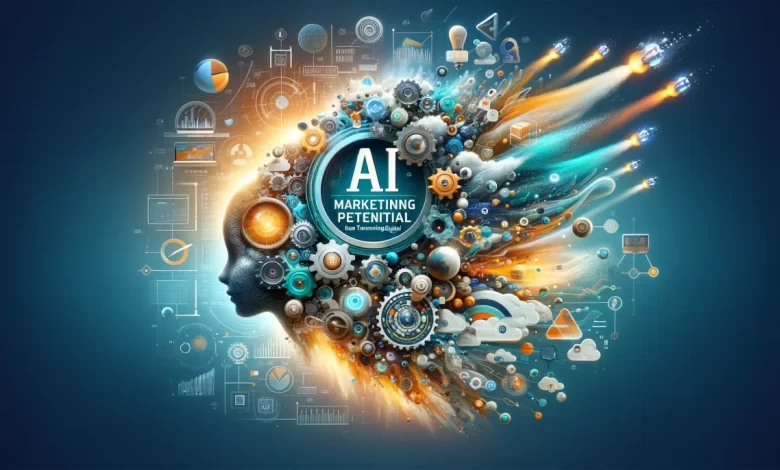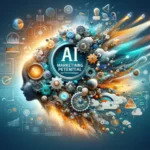
recose
Categories
The Role of AI in Digital Marketing
How Artificial Intelligence is Shaping the Future of Marketing
Artificial intelligence (AI) is changing the way brands connect with customers online, making digital marketing smarter, faster, and more effective. From personalized product recommendations to automated customer support, AI is becoming a powerful tool in helping companies understand and engage their audiences. Let’s explore some of the ways AI is transforming digital marketing, and why it’s becoming essential for businesses to adopt this technology.
1. Personalized Customer Experiences: One of AI’s biggest strengths is its ability to analyze customer data and create personalized experiences. By tracking things like browsing history, past purchases, and online behavior, AI tools can suggest products, services, or content tailored to each person’s preferences. This makes customers feel understood and valued, and they’re more likely to stay loyal to a brand. Imagine receiving a product recommendation in an email that perfectly matches your recent searches or getting a reminder about a favorite product when it goes on sale. These personalized experiences increase the likelihood of conversion and improve overall customer satisfaction.
2. Better Targeting with Smart Audience Segmentation: AI helps marketers target their audiences more accurately by analyzing huge amounts of data quickly. Traditional targeting methods often rely on basic factors like age or location, but AI digs deeper. It considers customer behavior, interests, and engagement patterns to identify “micro-segments” within a broader audience. This means marketers can create more specific, relevant ads that resonate with different customer groups. Social media platforms use AI to find similar audiences to a brand’s existing customers, which helps companies reach people who are more likely to be interested in their products.
3. Creating Content with AI-Powered Tools: AI tools are making content creation faster and easier than ever. Whether it’s writing product descriptions, social media captions, or even blog posts, AI-powered tools like ChatGPT and Jasper are becoming popular choices for marketers. These tools help brands produce high-quality content at scale, saving time and resources. AI doesn’t just help with creating new content; it also helps choose which content to show to specific audiences. By analyzing engagement metrics, AI suggests the best-performing content for different groups, making sure each piece resonates with its intended audience.
4. Predictive Analytics for Smarter Decisions: Predictive analytics is another area where AI shines. By analyzing historical data, AI can predict future trends, helping marketers make better decisions. For example, predictive analytics can forecast which products will be in demand during a specific season, allowing brands to stock up accordingly and avoid running out of popular items. This data-driven approach also helps with budgeting. AI can analyze ad performance and predict which campaigns will yield the best returns, so marketers can allocate their budgets more effectively, increasing return on investment (ROI) and reducing wasted spending.
5. Chatbots and Automated Customer Support: AI-powered chatbots have changed the way brands offer customer support. These virtual assistants can handle simple inquiries, like order status or product questions, 24/7, ensuring that customers receive quick responses no matter when they reach out. This instant support improves customer satisfaction and helps build brand loyalty. With advances in natural language processing (NLP), AI chatbots are getting better at understanding customer questions and providing relevant answers. They can even handle more complex conversations, helping resolve issues faster and freeing up human agents to focus on tasks that require a personal touch.
6. Optimizing Ads and Improving Campaign Performance: AI helps marketers get the most out of their ad budgets by optimizing campaigns in real time. AI-powered platforms, like Google Ads’ Smart Bidding, adjust bids automatically based on data to achieve the best possible results. This means marketers can focus on strategy and creativity instead of constantly adjusting their campaigns. AI can also analyze ad performance to suggest changes to ad copy, visuals, or targeting, making sure ads stay relevant and engaging. By fine-tuning campaigns, AI allows businesses to reach their ideal audience with the right message at the right time.
7. Gaining Insights with Sentiment Analysis: Sentiment analysis is an AI technique that lets brands understand how customers feel about their products or services by analyzing online comments, reviews, and social media posts. This tool helps brands gauge public opinion and address any issues that may arise. For example, if a company notices a trend of negative comments about a recent product release, it can respond quickly by improving the product or offering solutions to customers’ concerns. Sentiment analysis provides real-time feedback, allowing brands to adapt to customer needs and improve their reputation.
Conclusion
Embracing AI for a Smarter Marketing Future AI is revolutionizing digital marketing by providing tools that improve customer experiences, refine targeting, automate support, and make data-driven decisions possible. As AI technology continues to evolve, its role in digital marketing will only become more significant, helping businesses stand out in a crowded marketplace. For brands, adopting AI in their marketing strategies is no longer just an option—it’s essential for staying competitive. By using AI to connect with customers in more personalized, efficient, and engaging ways, businesses can build stronger relationships, increase conversions, and set themselves up for long-term success.








